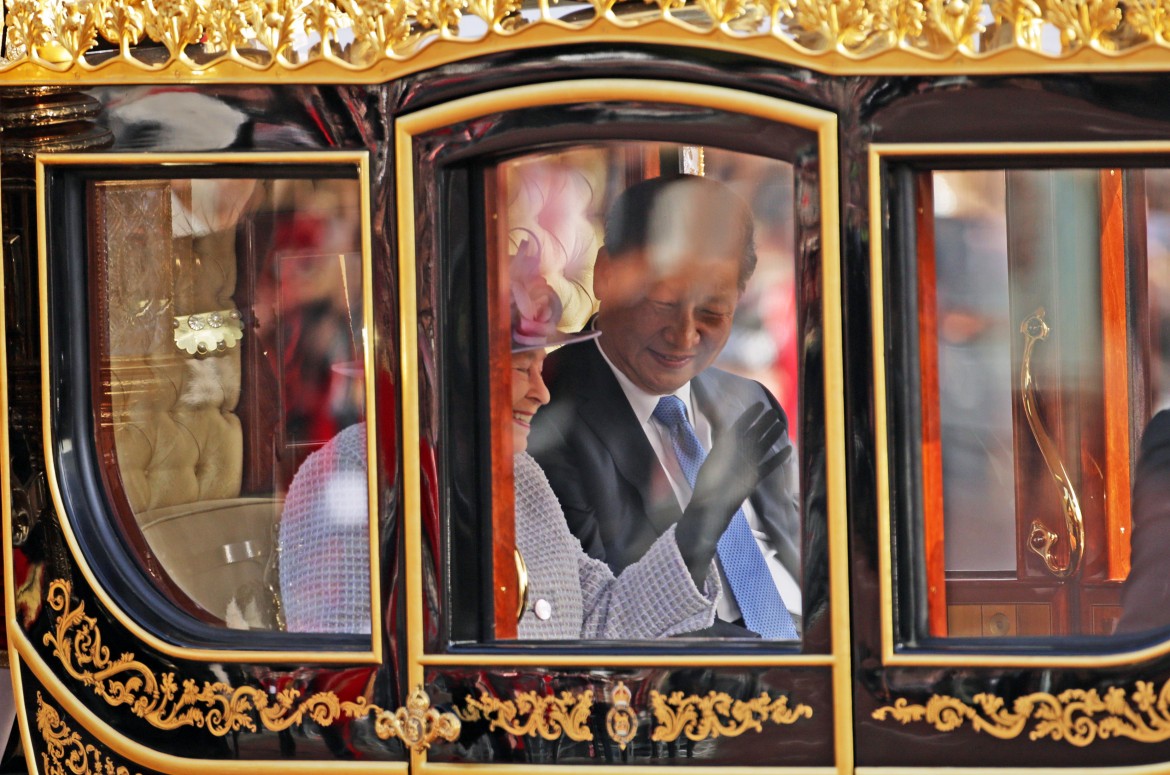UK-China
The Chinese Emperor and the Queen
President Xi Jinping told London: "This is the beginning of a golden era." On the table are $45 billion of bilateral trade, including a nuclear deal that would have been unbelievable a few years ago.

The “golden era” in Sino-British relations officially launched with the visit of Xi Jinping in London. The “Chinese emperor” met Queen Elizabeth at Buckingham Palace, spoke to Parliament, met with Prime Minister David Cameron and then with Labour’s leader Jeremy Corbyn.
In his speech at Westminster, Xi said something that captures the spirit of his “kingdom,” asserting his desire to create a new era for China. He specified that China “aspire to be seen not merely as a powerful force in the world but also a moral inspiration to it.”
Relations between Beijing and London, which aims to make China the second economic partner of Britain, are relevant to all, especially after the diplomatic blackout between the two countries in 2012, caused by an official visit by the Dalai Lama to the U.K. Beijing marked that fact on the black book for a while.
China and the U.K. are talking about cultural exchanges, technology funding and $45 billion worth of trade agreements, including China’s entry into the British nuclear industry, a move that would have been unbelievable just a few years ago.
Cameron appointed Jack Ma, founder of Alibaba, the largest e-commerce company in the world, as a consultant for trade. Xi has brought with him during the visit many businessmen, representatives of major Chinese banks and managers who will have to follow the important agreements signed on nuclear power.
Xi gave the Queen two musical CDs performed by his wife, a popular folk singer in his country. He also expressed his desire to eat “fish and chips” in the capital (Xi postures as a “man of the people,” having famously eaten lunch at a small restaurant in Beijing). The British press reported these details, color notes of a historic visit. Beyond the economic aspects, it’s a point of no return in the global geostrategic relations.
Xi Jinping’s visit in London is a point of no return in the global geostrategic relations
The hospitality afforded to Xi has led several British commenters to conclude: “London has abandoned its democratic values in exchange for money.”
It’s what everyone does with China: try to minimize issues related to human rights and push hard on trade relations.
China is a big market for British exports and an inexhaustible source for investments in the country. In times of crisis, Beijing is the best ally to play in the international arena. London knows it and knows realpolitik.
But there are some more reflections about this visit: The protests against Xi, carried out by human rights activists, pro-Tibet and Falun Gong supporters, have had virtually no space in the British media or in the welcome words of local politicians, with rare exceptions. It’s well known that China considers these as domestic issues.
But it is also true that in the process of a greater understanding between China and the rest of the world, as the Chinese president stressed in his speech to the British Parliament, perhaps we should start to take a more complex reading of what is happening in China. And along with this, without failing to point out the mistakes of the Chinese system, there is perhaps beginning to emerge a different way to put pressure on Beijing on some issues.
“Face” (miànzi) for the Chinese — and for all Asian people — is a fundamental social concept. Maybe it’s more effective to make the most decisive statements in private, rather than to stir up media attention that embarrasses Beijing and prompts unpredictable reactions.
Xi, in his speech to Parliament, reminded the members of the efforts China is making in rule of law issues.
Originally published at http://ilmanifesto.info/limperatore-cinese-incontra-la-regina/ on 2015-10-21
